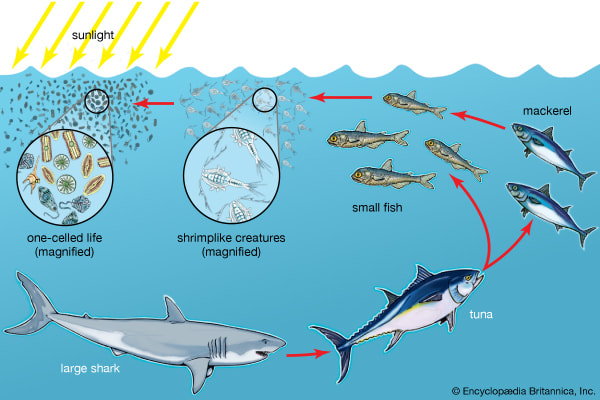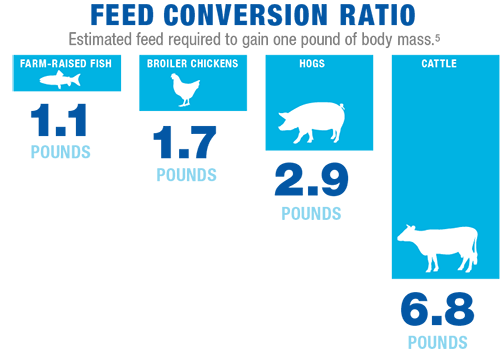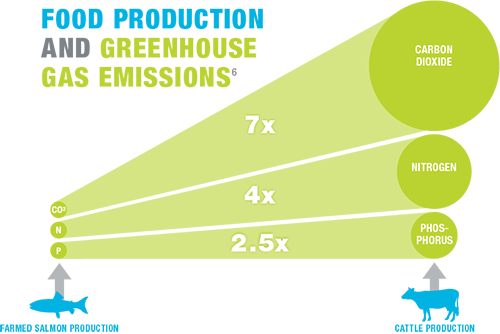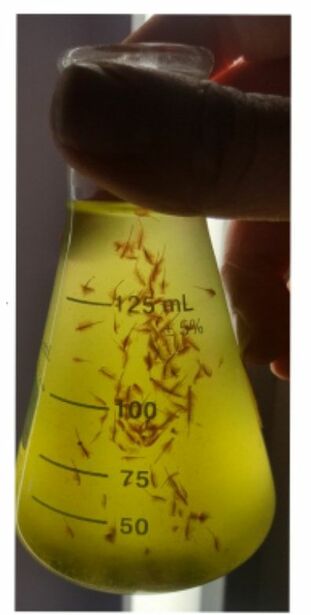Microalgae produce nutrients for aquatic life
Phytoplankton produce proteins, fats, and omega-3 fatty acids that are consumed by living plankton in oceans and freshwater ecosystems. Enjoy this video that clearly shows plankton consuming microalgae (at 45s you see clear digestion).
Fish protein is more sustainable than other animal proteins
Agricultural production will need to increase and become more efficient to meet the world's increasing protein needs. One pound of fish protein can be made using 1.1 pounds of feed. This is 6 times more efficient than cows, and 3 times more efficient than hogs. Fish production contributes fewer greenhouse gases and releases less chemical waste to the environment. Replacing cattle and hog protein with fish protein will increase food production and sustainability.
Fish farming relies on harvesting fish from the ocean
Growing fish for human consumption requires complex fish feeds. These feeds are made of two major components: 1) crops like wheat, corn, and soy and 2) fish-derived protein and fat. These fish proteins and fats are incorporated into feeds by adding fish oil and fish meal.
How are fish meal and fish oil made?
Fish meal and fish oil are produced by processing marine fish with minimal market value like anchovies, sardines, and menhaden. Because these fish are from the ocean, they contain mercury and other contaminants (like plastic).
The problem: We are overfishing the oceans
Ocean fish stocks are increasingly being fished at biologically unsustainable levels. "Fully fished" stocks can be sustained with current fishing behavior while "Overfished" populations cannot be sustained at current fishing levels, ,
A solution: Use microalgae and brine shrimp to make fish meal
At Demeter Biosciences we have optimized a brine shrimp production pipeline on land. This pipeline feeds microalgae to plankton to create fish proteins and fats. We can tailor the protein content or fat content of each brine shrimp-derived fish meal. Some uses of this kind of fish meal and plankton are.....
1) Feed for fish hatcheries that require specialized omega-3 fatty acid content
2) Replacement for fish meal and fish oil in fish feeds to make mercury-free fish
3) Specialized feeds for aquarium hobbyists or aquarium museums
4) Dog and cat foods
1) Feed for fish hatcheries that require specialized omega-3 fatty acid content
2) Replacement for fish meal and fish oil in fish feeds to make mercury-free fish
3) Specialized feeds for aquarium hobbyists or aquarium museums
4) Dog and cat foods
1) Figure from the global aquaculture alliance: https://www.aquaculturealliance.org/what-we-do/why-it-matters/








